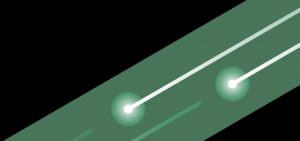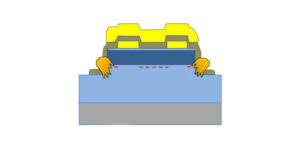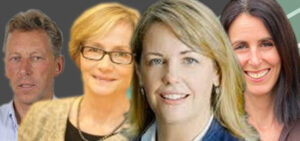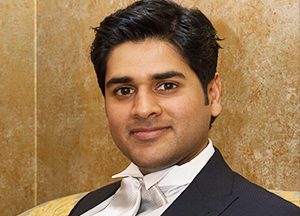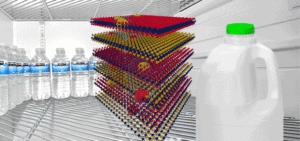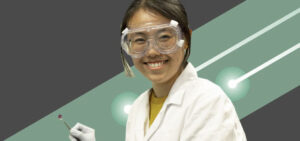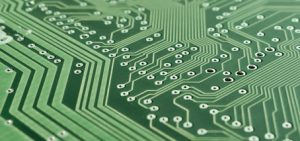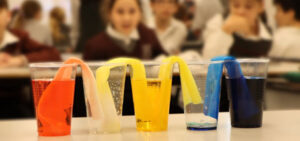FLEET News
Australia’s Minister for Education Dan Tehan announced $280 million in funding for new research collaborations to start next year. This month’s ARC Discovery Project and Linkage Project funding announcement includes eight grants for projects and facilities led by or involving FLEET researchers. While these projects are distinct from FLEET’s mission to build low-energy electronics, they testify to the capacity FLEET …
Removing random doping allows for reproducible manufacture of quantum devices A UNSW-led collaboration has found that removing random doping in quantum electronic devices dramatically improves their reproducibility – a key requirement for future applications such as quantum-information processing and spintronics. The quantum reproducibility challenge The challenge with making quantum devices is that, until now, it has not been possible to …
FLEET has significantly added to the expertise available to guide Centre policy and science, with the latest additions to the FLEET Advisory Committee (FAC) and International Scientific Advisory Committee (ISAC). We welcome to our Centre advisory committees Professor Rebekah Brown (Monash University), Dr Esther Levy (Wiley), Francois Peeters (University of Antwerp) and Joanna Batstone (ex IBM). Prof Rebekah Brown is …
CSIRO Chief Scientist Dr Cathy Foley has been named as Australia’s next Chief Scientist. Dr Foley is currently Chief Scientist at CSIRO, where as Deputy and Science Director of CSIRO Manufacturing, she engaged Australian manufacturers and researchers to translate research into economic prosperity. Her contributions to the understanding of superconducting electronics and devices were recognised with the 2014 International IEEE …
Distance and Covid will not stop science-outreach. Thank you Zoom!** **not a paid partnership : ) Students at Elsternwick Primary School in Victoria had the opportunity to learn about electrical power, in a hands-on exercise guided by on-screen FLEET members, and following two of the experiments from FLEET’s comprehensive Home Science library. “A unanimous ‘WOW!’ came from all four classrooms …
Congratulations to Priyank Kumar who received a Discovery Early Career Researcher Award (DECRA) 2021 round 1 announced today. With a success rate of only 17 percent, Dr Kumar’s project “A predictive, ab initio design of enhanced plasmonic photocatalysts” was among the 200 awarded in this round. By utilising state-of-the-art ab initio computations, Dr Kumar will design an efficient plasmonic …
Multiferroic BFO’s unique magnetic and electrical properties offer possible ultra-low energy data storage A new UNSW study comprehensively reviews the magnetic structure of the multiferroic material bismuth ferrite (BiFeO3 – BFO). The review advances FLEET’s search for low-energy electronics, bringing together current knowledge on the magnetic order in BFO films, and giving researchers a solid platform to further develop this …
Could a stack of 2D materials allow for supercurrents at ground-breakingly warm temperatures, easily achievable in the household kitchen? An international study published in August opens a new route to high-temperature supercurrents at temperatures as ‘warm’ as inside a kitchen fridge. The ultimate aim is to achieve superconductivity (ie, electrical current without any energy loss to resistance) at a reasonable …
Moore’s law is an empirical suggestion describing that the number of transistors doubles every few years in integrated circuits (ICs). However, Moore’s law has started to fail as transistors are now so small that the current silicon-based technologies are unable to offer further opportunities for shrinking. One possibility of overcoming Moore’s law is to resort to two-dimensional semiconductors. These two-dimensional materials …
What role does heat play in quantum impurity studies? A new, Monash-led theoretical study advances our understanding of its role in thermodynamics in the quantum impurity problem. Quantum impurity theory studies the behaviour of deliberately introduced atoms (ie, ‘impurities’) that behave as particularly ‘clean’ quasiparticles within a background atomic gas, allowing a controllable ‘perfect test bed’ study of quantum correlations. …
–by Iolanda Di Bernardo and Hareem Khan WLA’s Leading Edge program is designed to help women in their first leading position to develop their leadership skills, enabling the transition of aspiring and early-career female managers into confident, capable and motivated leaders. Throughout the six-month course participants are presented with topics including elements of a successful team / personal styles interpersonal …
International collaboration reviews future data-storage technology that steps ‘beyond binary’, storing more data than just 0s and 1s Electronic data is being produced at a breath-taking rate. The total amount of data stored in data centres around the globe is of the order of ten zettabytes (a zettabyte is a trillion gigabytes), and we estimate that amount doubles every couple …
Scientists finding creative ways to do science-outreach found a silver lining in COVID restrictions actually improved the experience for students, and took the scientists back to remember ignition of their own childhood ‘science spark’. A team of FLEET PhDs and ECRs at UNSW were able to bridge 2020’s COVID restrictions to safely engage a classroom of students with virtual, but …
It’s certainly been a challenge, maintaining science-outreach efforts in 2020… But a group of a FLEET researchers found a way to showcase their labs at UNSW recently, spotlighting the facilities for prospective students at the university’s virtual open day. Introduction to the undergrad physics labs (Krittika Kumar, Matt Rendell, Yoni Ashlea-Alava and Karina Hudson) Measuring superconducting quantum interference: a third-year …
Congratulations to Sumeet Walia, who was named this morning as a finalist in the prestigious Australia Museum Eureka Prizes – the country’s top science awards. An Associate Professor in the School of Engineering, RMIT University, Sumeet is short-listed for the Eureka Prize for an Emerging Leader in Science. “My research is dedicated towards discovering new phenomena in nanomaterials and creating …

